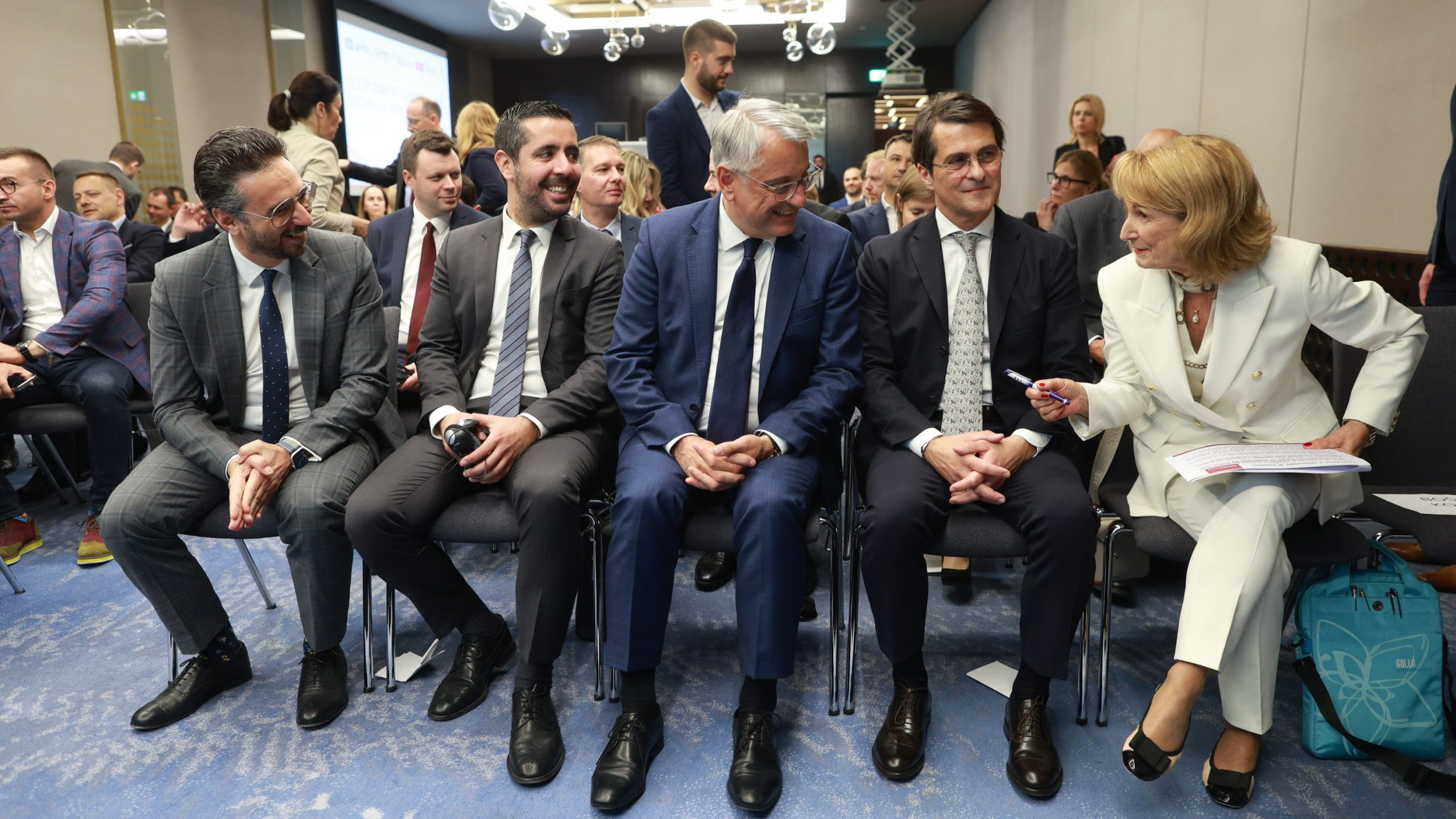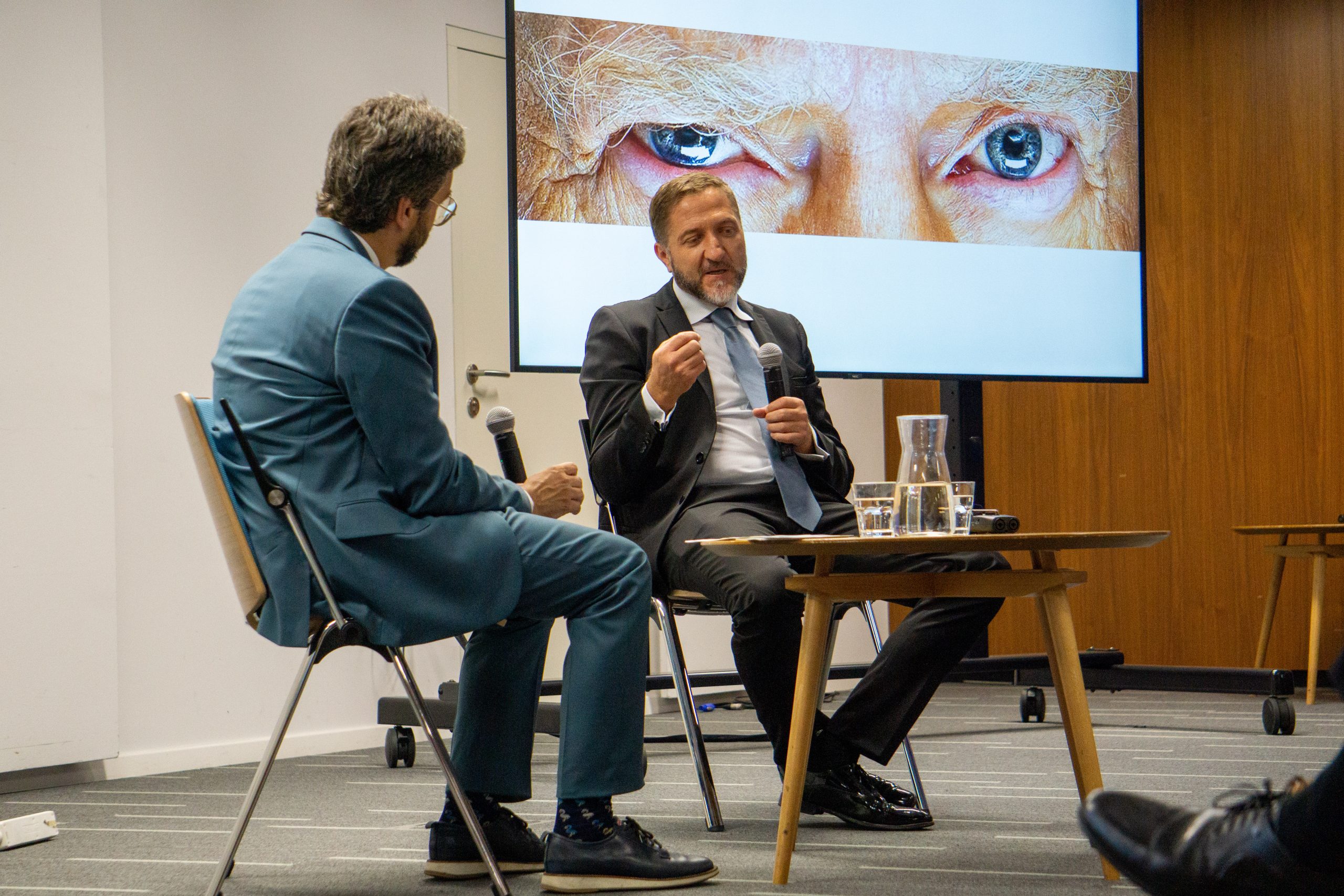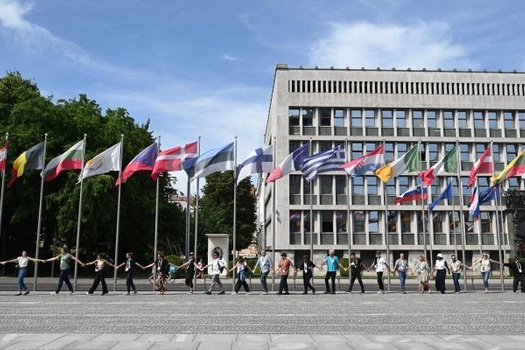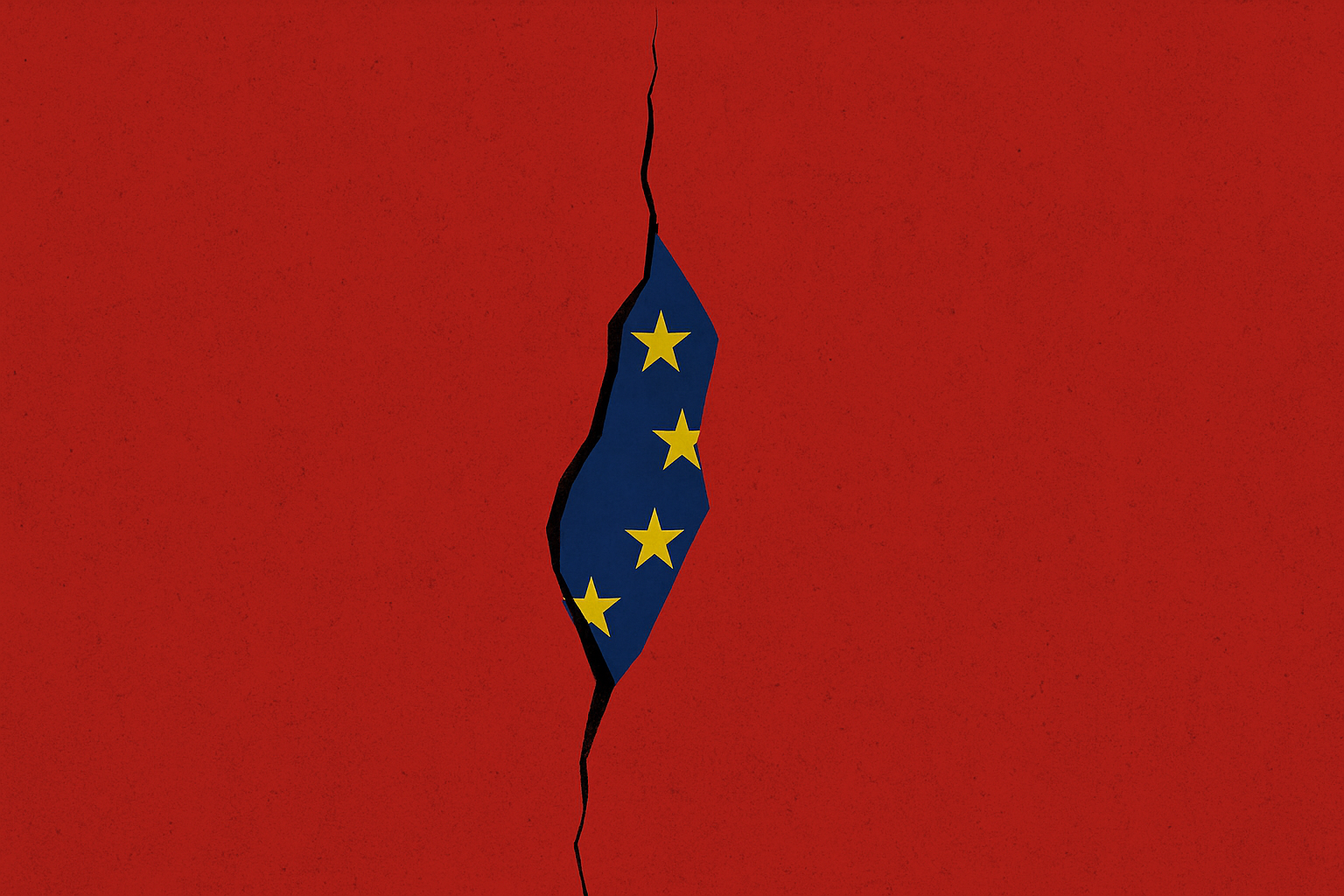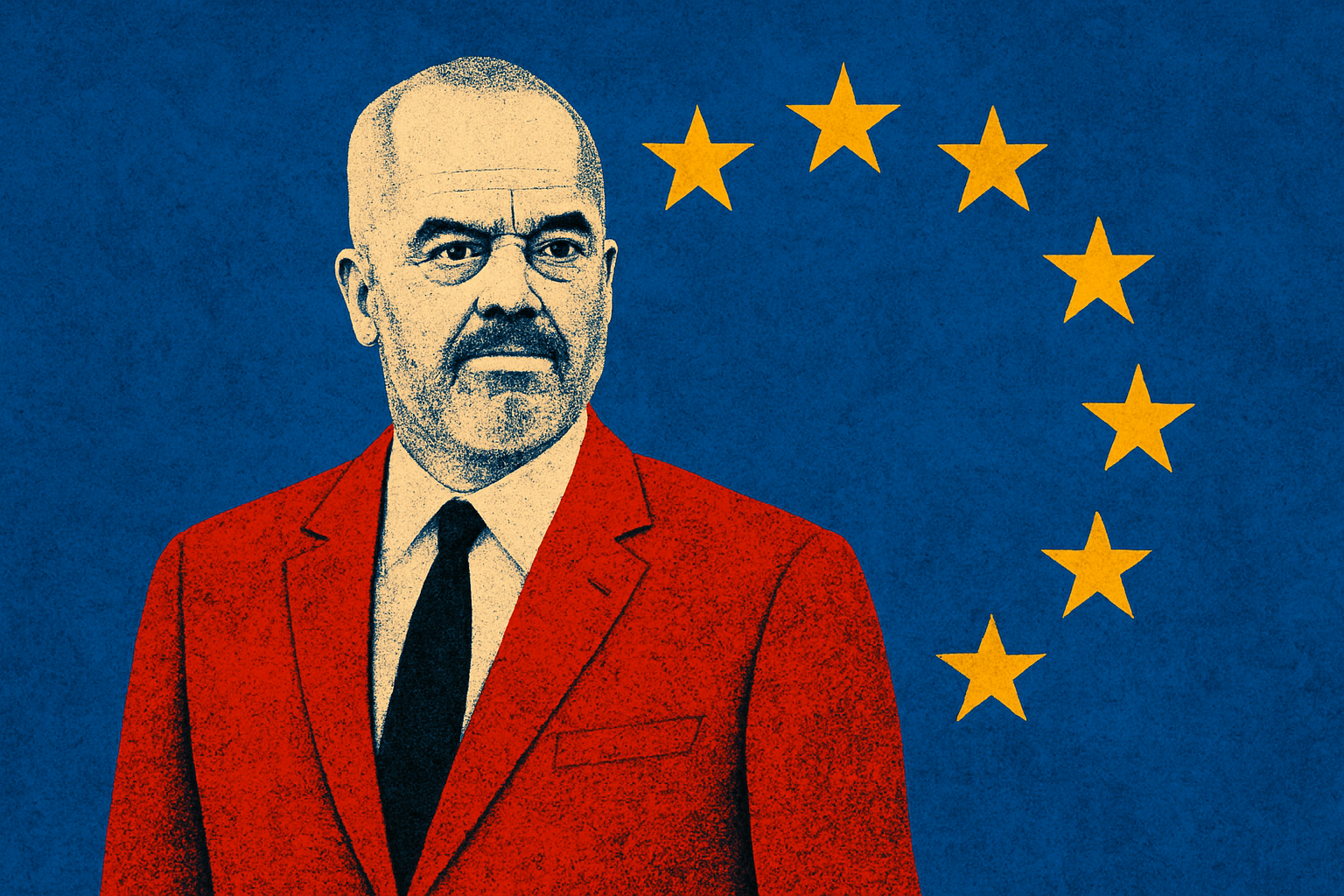Serbia and Slovenia push for deeper economic integration
Jan Tomše
At last week’s business forum on economic cooperation between Slovenia and Serbia, business representatives from both countries discussed untapped opportunities in both markets. Drawing on their strong historical ties, the participants repeatedly emphasised the solid foundation that both countries need to build upon.
Serbia and Slovenia are not competitors, but rather complement each other and the potential for economic cooperation is immense. However, strengthening of business relations is still hindered by excessive administrative barriers. Therefore, the Western Balkans, where both countries have strong economic interests, should be opened as much as possible, agreed the participants of the event organised by the Institute for Strategic Solutions in cooperation with the Chamber of Commerce of Serbia, Spirit Slovenia the public agency, and the Slovenian Chamber of Commerce.
Tine Kračun, director of the Institute for Strategic Solutions, emphasised that good economic cooperation between Serbia and Slovenia could be strengthened by more intensive integration of Western Balkan countries into the European Union, starting with the establishment of a common economic zone as soon as possible. According to Ana Marković, a representative of the Chamber of Commerce of Serbia in Slovenia, there are about 2,000 companies with Serbian capital operating in Slovenia. Slovenian economic involvement in Serbia is also strong, as Slovenian companies employ more than 20,000 workers in Serbia, noted Matjaž Han, Minister of Economy, Tourism, and Sport. Tomislav Momirović, Minister of Domestic and Foreign Trade of the Republic of Serbia, added that Serbian entrepreneurs understand and are familiar with the business philosophy and habits of the Slovenian market. Today, he said, Serbia has a growing economy seeking opportunities in foreign markets, with 550,000 more jobs in Serbia now than a decade ago.
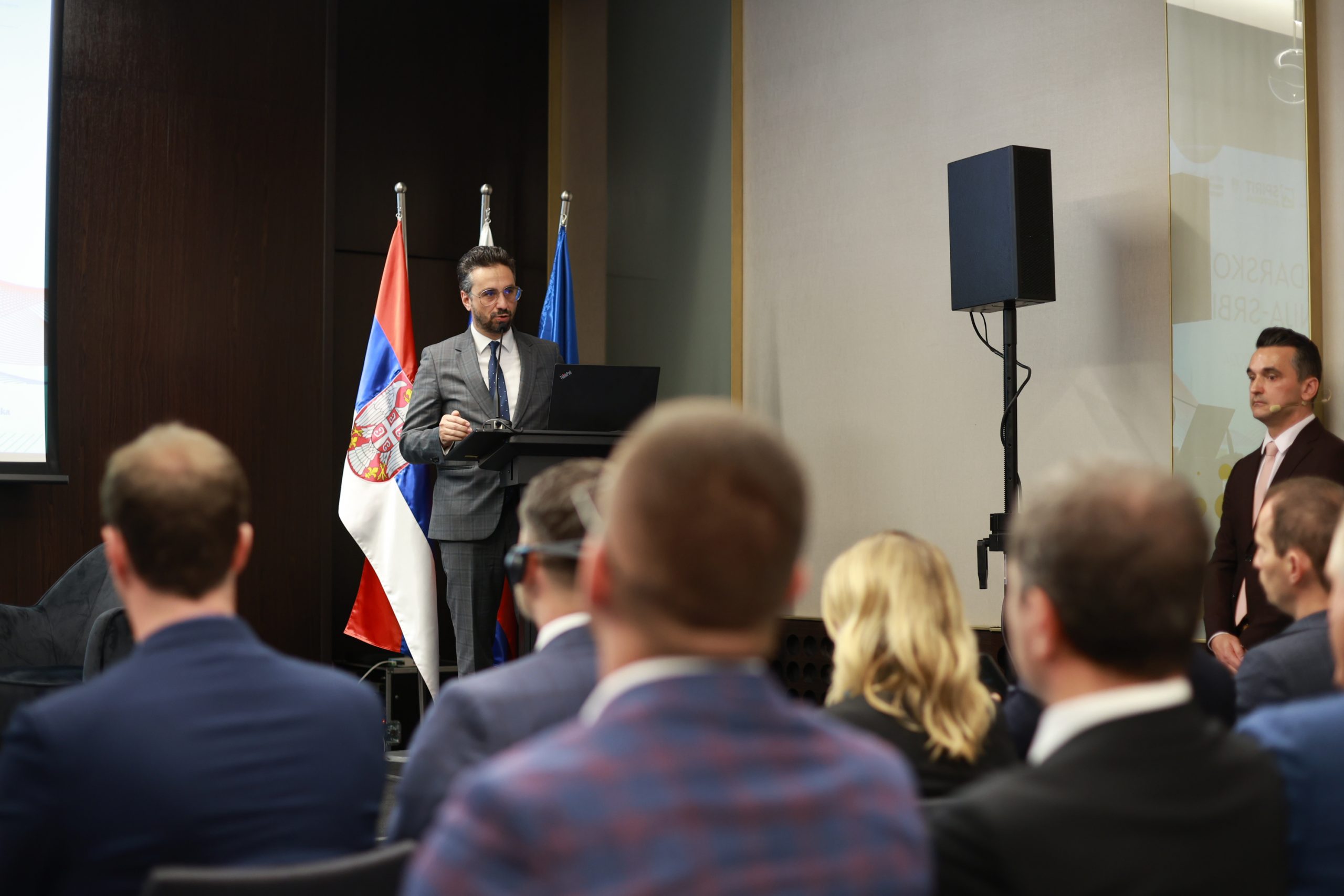
Tine Kračun, director of the Institute for Strategic Solutions, advocated for the establishment of the common economic zone as soon as possible.
Jure Stojan, partner and director of development and research at ISR, highlighted the role Serbian scientist Mihajlo Pupin played in ensuring that Bled remains part of Slovenia. After World War I, during the Paris Peace Conference in 1919, Pupin negotiated with the then American President Woodrow Wilson to have the territory of the western part of the Julian Alps, including Jesenice, Bled, Bohinj, and Triglav, which was initially intended to be annexed to Italy, incorporated into the then Kingdom of Serbs, Croats, and Slovenes. Stojan also summarised in a brief analysis that there are markets where Slovenians and Serbs are each other’s sole buyers or suppliers. From 2005 to 2020, Serbian exports to Slovenia increased from 94 to 408 thousand tons of goods annually, while Slovenian exports to Serbia rose from 117 to 307 thousand tons annually.
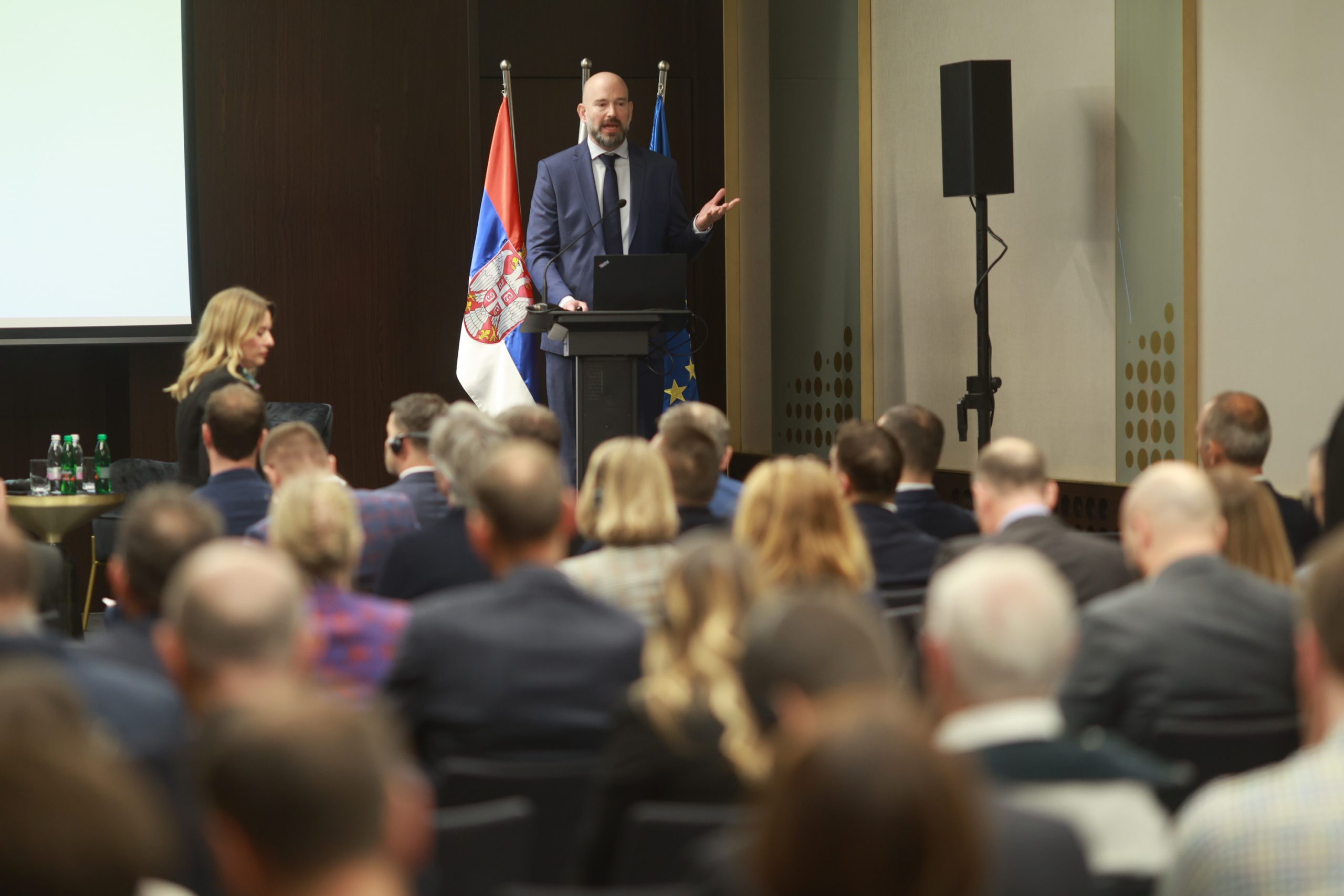
Jure Stojan, DPhil, highlighted the historical ties of the two countries through Mihajlo Pupin’s role in ensuring Bled remained within Slovenian borders.
Rok Capl, Director of the Spirit Slovenia public agency, pointed to the Slovenia’s strong points including the best combination of labour force in Europe, that is more affordable and more productive than in the West. Nikola Janović, Director of International Cooperation at the Serbian Development Agency, noted that Germany is the biggest investor in Serbia today, followed by Slovenian, Italian, and Austrian investments, with an increasing presence of Chinese investments.
Where and how to invest?
Željko Stašević, Director of Kempinski Palace in Portorož, observed that Slovenia’s tourist capacities are far from being fully utilised, especially in high-end tourism. Similarly, Vukajlo Babić, owner and director of the Serbian construction company Inobačko, believes that Slovenian and Serbian companies can jointly enter third markets. Uroš Čop, partner and director at the law firm Senica Andersen, finds that there are no major consulting firms in the region, which they see as an opportunity for business growth. They offer tax, legal, HR, and corporate consulting through a one-stop-shop approach. Their experience with Serbian partners has been exclusively positive, Čop said.
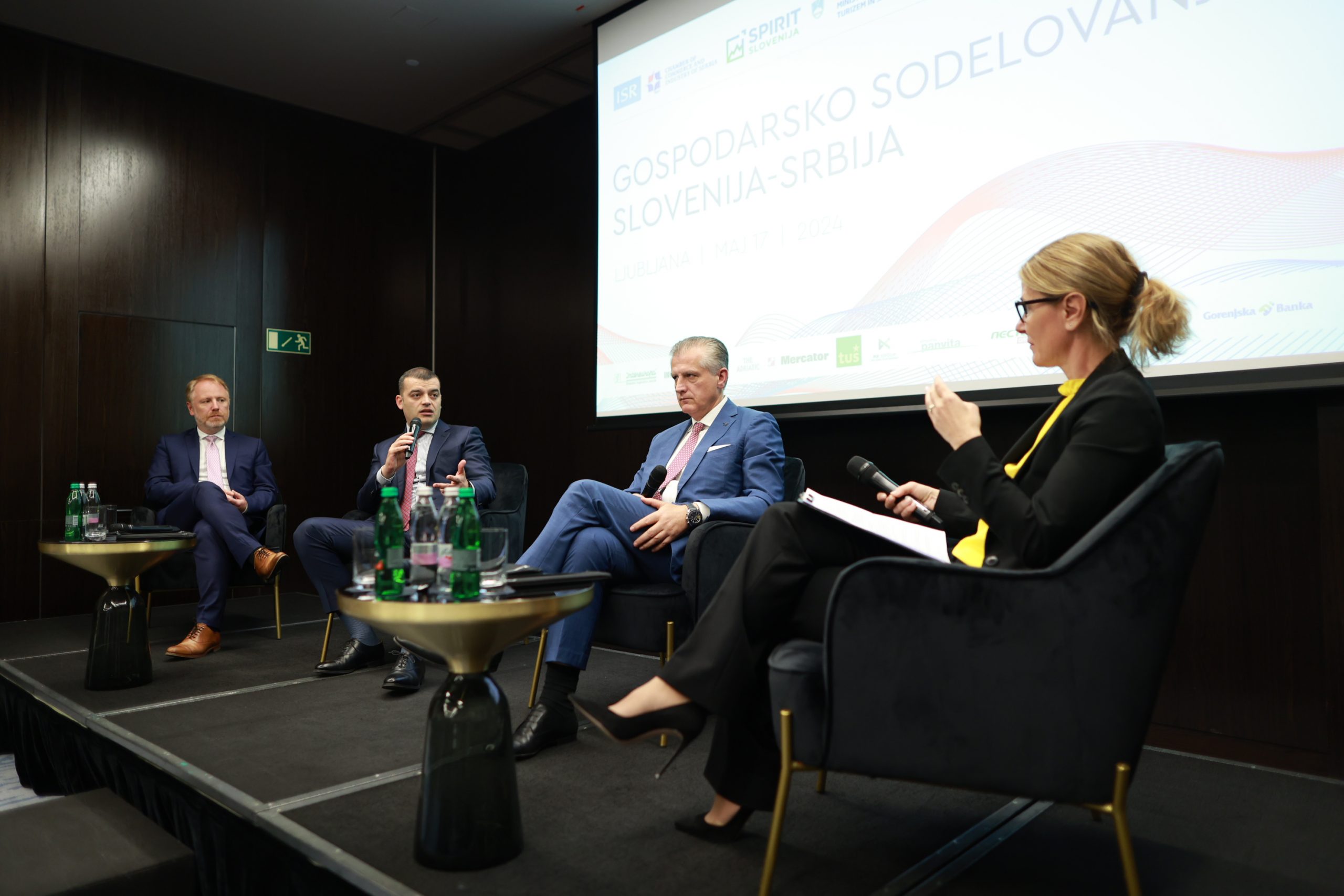
At the roundtable discussion moderated by Maja Dragovic, editor-in-chief of The Adriatic, the participants looked at the untapped business opportunities in Slovenia, particularly in tourism and construction.
Mariča Lah, President of the Slovenian Chamber of Commerce, stated that the chamber, as a representative association of the commerce sector, accounts for 32% of Slovenia’s GDP, with commerce employing 16% of the workforce. The potential of commerce in Slovenia exceeds EUR 35 billion, primarily in food and beverages, followed by energy products and personal vehicles and equipment. Toni Balažič, CEO of Panvita, noted the average Slovenian consumer visits five different stores weekly and is one of the most price-sensitive. Slovenia and Serbia are not competitors but complementary, Balažič said, adding that the competitors come from Spain, Greece, and other countries.
How to get on Slovenian store shelves?
Tomislav Kramarić, president of the management board of Mercator, illustrated consumer differences with the example of flour, which barely occupies a shelf in Western markets, while the number of shelves with flour in Eastern European countries is significantly larger. Similarly, he said, the demand for red meat is much higher in Serbia than in Slovenia, where consumers prefer white meat. Jože Smolič, a member of Petrol’s management board, believes that Slovenian consumers like Slovenian products but ultimately buy what is most affordable and high-quality.
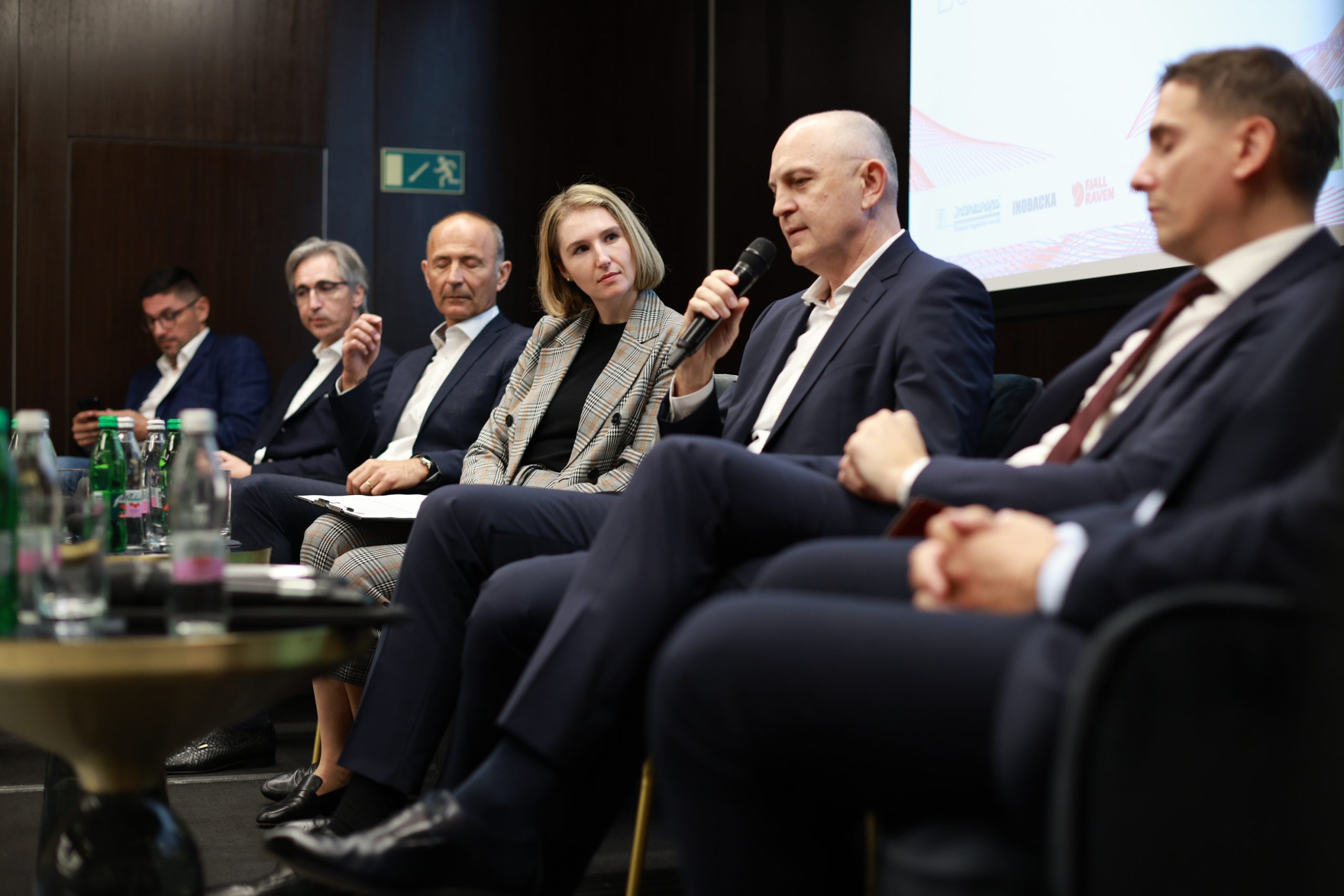
At the second roundtable discussion, moderated by ISR’s projects director Barbara Matijašič, participants looked at the differences between consumers in EU as well as across the southeast Europe.
Dušan Mitić, director at Tuš Slovenia, highlighted the travel time of products between Serbia and Slovenia, extended by border congestion, as a challenge for economic cooperation. Vukašin Petković, director of Corporate Affairs at Nectar Fructal Group, stated that cooperation is key when entering both markets. Bojan Knežević, CEO of Jaffa Crvenka, argued that focusing on continually new products that enhance the established offer is crucial when entering new markets. The differences between individual markets are significant, as illustrated by the diverse preferences of consumers in the UK, Germany, and Romania.
THE ADRIATIC
The Adriatic team has put together a brochure for the forum, highlighting the historical and business relations between Slovenia and Serbia. To access the full content click on the link.

